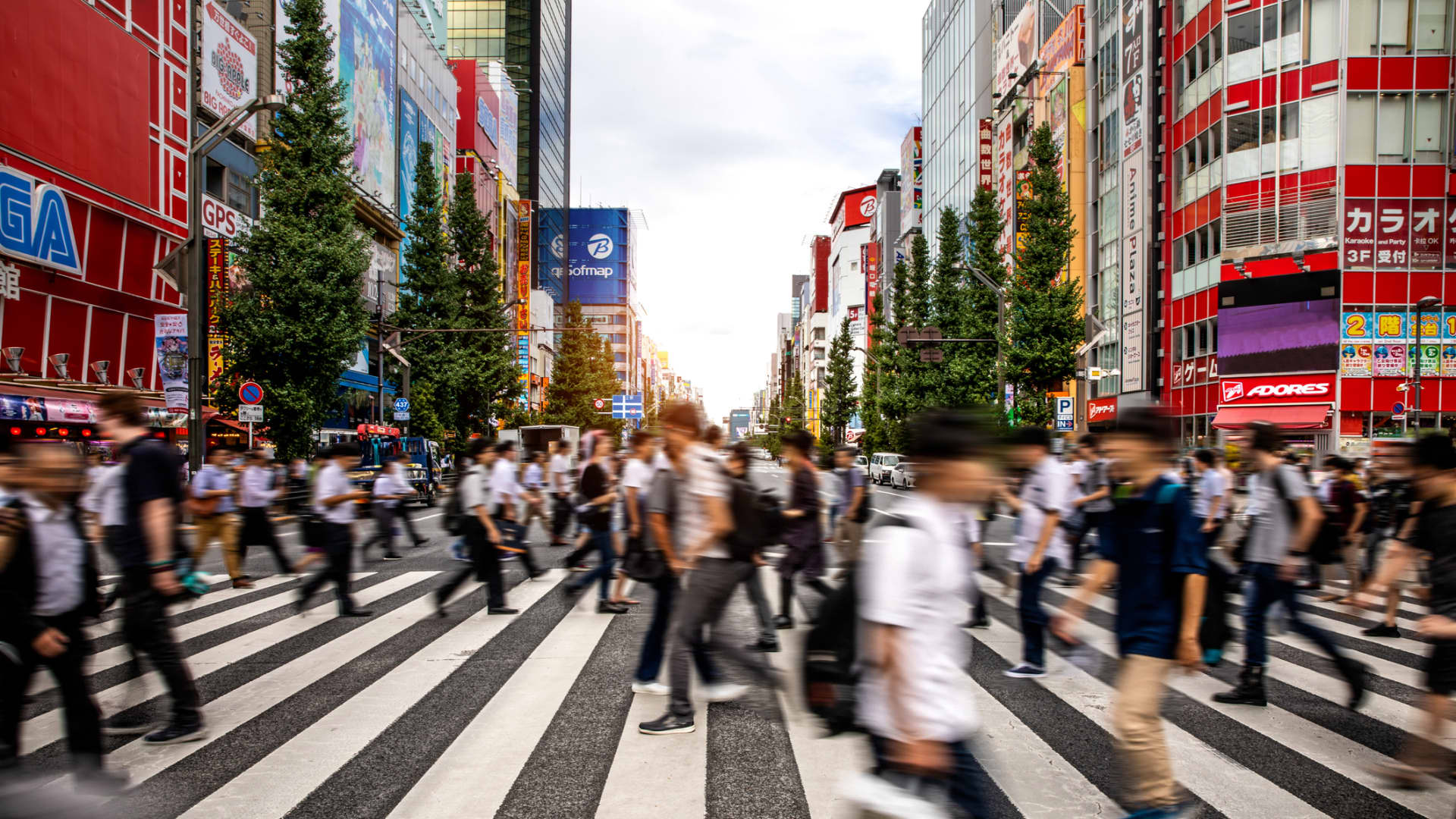- Government data released ahead of Japan’s “Respect for the Aged Day” showed that the country’s population aged 65 and over had risen to an all-time high of 36.25 million.
- According to Robert Feldman, chief economist at Morgan Stanley MUFG Securities, the data fuels concerns about demographic shifts and a labor crunch in the country.
The Japanese will let the country wither before accepting immigrants. It’s a shame.
The old in Japan have that problem. There have been other studies that have shown that you get people have significantly less problems with it. Japan has always been insular, but their politics and older age groups have always been more stagnant and less accepting.
Basically, don’t throw the whole country under the bus when it’s just the old farts that don’t want things to change.
That’s great, but until it translates into policy it’s purely academic.
But the old farts are growing in numbers, so to what degree were conservatives always that way, in other words are people becoming newly/more conservative about immigrants in their old age, or will the more liberal young ones of today bring this more open attitude into their old age , lessening conservatism over time?
I’ve heard this said about Japan on Lemmy more than once. Is there a source for the sentiment?
It isn’t “sentiment”. Japan is very well-known for being exceptionally unwelcoming to immigration in general, other than for low-skilled resident workers. Here’s a pretty good overview: https://www.nippon.com/en/in-depth/d00920/
To be fair, that isn’t unusual for east Asia. China is the same, but their demographic crisis is still two decades away.
From the article itself:
However, the number of foreign workers in Japan reached a record high of 2,048,675 in 2023. This represents an increase of 225,950 over the past year, and is the first time that the figure has exceeded 2 million.
These foreigners benefit from visa systems introduced in recent years to attract experienced workers or those in need of training. Created in 2019, the status of “specified skilled worker” is accessible to people with skills in one of 12 defined economic sectors, including health, construction and agriculture.
In 2023, the “Highly skilled professional” visa (J-Skip) was created, aimed at researchers or senior executives whose annual salary exceeds 20 million yen (€121,000); as was the “Future creation individual” visa (J-Find), which enables graduates of 104 top universities – including France’s Paris-Saclay and Sorbonne Université – to obtain a long-term visa if they want to start a business or find a job.
This doesn’t sound low skilled to me. Also, the record high number of foreign workers surely means that they are, in fact, increasing immigration?
Edit: it looks like you changed your article. This is the article that was originally linked, and which I am referring to, to prevent reader confusion: https://archive.li/cefT3
I replaced it with a more detailed source. Perhaps your confusion is stemming from the way you’re conflating foreign workers and immigrants.
https://en.wikipedia.org/wiki/Immigration_to_Japan
Some Japanese scholars have pointed out that Japanese immigration laws, at least toward high-skilled migrants, are relatively lenient compared to other developed countries, and that the main factor behind its low migrant inflows is because it is a highly unattractive migrant destination compared to other developed countries.
Yet in spite of this, the number of foreign residents in Japan in recent years is very high.
This is only one small piece of the puzzle, but it’s fairly common to have trouble finding a place to rent if you’re a foreigner, specifically because you’re a foreigner.
There’s also restaurants and other shops that won’t even serve foreigners, even if you’ve lived there for years and speak the language
According to Robert Feldman, chief economist at Morgan Stanley MUFG Securities, the data fuels concerns about demographic shifts and a labor crunch in the country.
How the fuck is it his problem though? Is he personally interested in the well-being of Japanese people? No. Does he only care about maximizing his own profits? Yes.
CNBC - News Source Context (Click to view Full Report)
Information for CNBC:
MBFC: Left-Center - Credibility: High - Factual Reporting: Mostly Factual - United States of America
Wikipedia about this sourceSearch topics on Ground.News
EDIT FOR THE DOWN VOTERS:
Has it really, though? Or are they mostly unreported corpses still collecting pensions? And screwing up the data our doctors are using to tell us about “healthy living”?

Didn’t you see this the other day in the news?
Feel free to come at the story from another source, it’s legit peer-reviewed research. Of course my choice of “mostly” was exaggeration with humorous intent.






